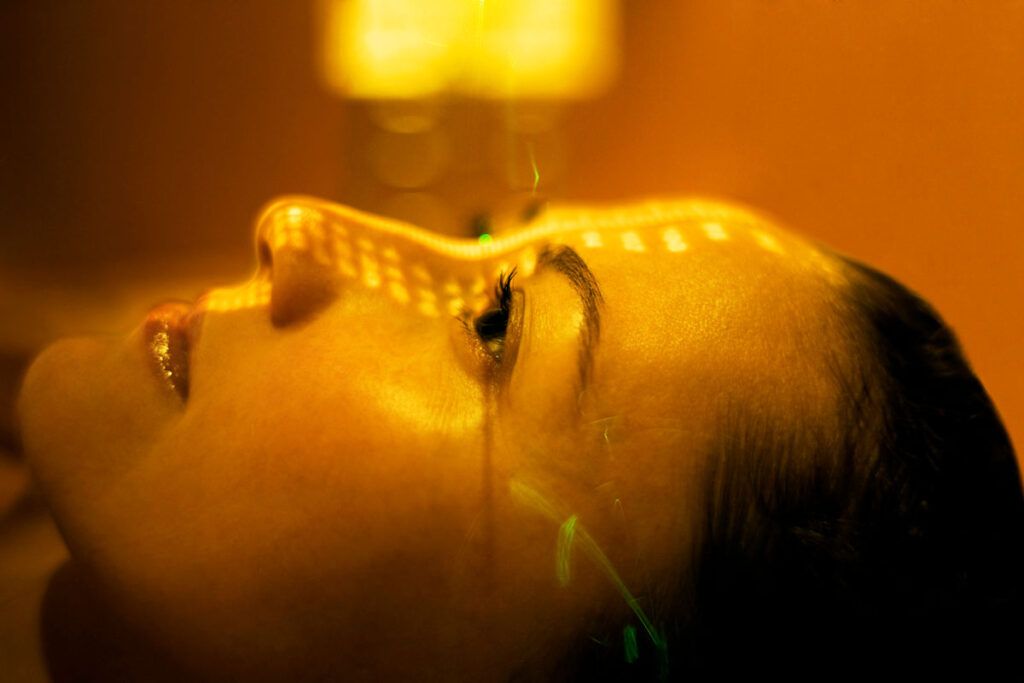Radiation therapy, or radiotherapy, is one of the most used treatment options available for cancer. Radiation therapy uses a high energy radiation beam that doctors focus on the area of the body that requires treatment. The radiation beam can destroy or damage cancer cells, causing them to die and preventing them from growing and dividing.
Radiation therapy can be very effective in treating cancer, but it also can cause several side effects. Doctors can give radiotherapy in three forms, depending on the type of cancer and the area of the body involved. This includes:
- external radiation by using a machine to direct high energy beams straight to the cancer cells
- internal radiation by placing a radioactive source inside the body
- systemic radiation by giving oral or intravenous medications
While there are many benefits to radiation therapy, doctors rarely give this form of treatment twice due to the risk of serious side effects.
Repeat radiation therapy

Doctors do not generally give radiation therapy twice due to severe adverse effects. Receiving radiotherapy twice in certain areas of your body, such as the head and neck region, can lead to severe health complications, including internal hemorrhage, that may lead to death.
Radiation therapy damages both healthy and cancer cells. While healthy cells can recover from the damage radiotherapy has caused them over time, they will never fully recover from the radiation treatment.
Undergoing radiation therapy twice can cause severe health complications as your tissues can only tolerate a limited amount of radiation over your lifespan.
However, depending on the type and location of the tumor, such as in prostate cancer, doctors have recently started considering repeating the radiation treatment. Before a person qualifies for a second cycle of radiation therapy, doctors consider the following:
- the general condition of the person
- recurrence and size of the tumor
- whether surgery is an option
- the person’s wishes
- how much radiation the surrounding tissues are still able to receive
- the results of the previous cycle of radiation therapy
- the time since the previous radiotherapy cycle
This has provided a better outcome for certain types of cancer, but the long-term effects of undergoing radiation therapy twice are currently unknown.
Other side effects
Other side effects of radiation therapy may include:
- nausea and vomiting
- diarrhea
- fatigue
- hair loss
- skin changes
- swelling (edema)
- appetite and weight loss
- difficulty swallowing and other throat problems
- sexual and fertility issues
- bladder and urinary problems
As radiation therapy also damages your healthy cells, its side effects may last or develop after you end your cycle of treatment. You may even develop side effects months or years after you finish radiation therapy. However, not all side effects may occur, and they may vary depending on where you receive the radiation therapy treatment.
If you develop radiation therapy side effects, consider speaking with a doctor. They can prescribe medications to manage symptoms and reduce the discomfort they can cause.
Benefits of radiation therapy
With radiation therapy, the specialist can target specific areas of the body to help treat the cancer and ease its symptoms. Radiotherapy has several uses in cancer treatment, including:
- curing cancer and destroying cancer cells
- slowing down or stopping the growth of cancer cells
- preventing cancer from coming back
Radiation therapy may also play a part in the palliative care of people with cancer. This is because external radiation may help shrink tumors, providing pain relief or improving other issues linked to the growth of cancer tumors, such as difficulty breathing or loss of bladder and bowel control.
Other cancer treatments
Radiation therapy is not the only treatment option available for cancer. Doctors can recommend the most appropriate treatment based on the type of cancer and its stage. Other treatment options may include:
- surgery
- targeted therapy medications, such as:
- entrectinib (Rozlytrek)
- chemotherapy drugs, including:
- carboplatin (Paraplatin)
- capecitabine (Xeloda)
- methotrexate (Trexall)
- fluorouracil (Carac)
- paclitaxel (Taxol)
- bendamustine (Treanda)
- gemcitabine (Gemzar)
- hormone therapy
- stem cell transplant
- bone marrow transplant
Doctors may also prescribe medications, such as anti-nausea drugs, steroids, and antihistamines, to ease some of the side effects you may experience after undergoing cancer treatment. This may include:
- ondansetron (Zofran)
- metoclopramide (Reglan)
- dimenhydrinate (Dramamine)
- palonosetron (Aloxi)
- granisetron (Kytril)
- dexamethasone (Decadron)
- diphenhydramine (Benadryl)
If you need help covering the cost of medications, the free Optum Perks Discount Card could help you save up to 80% on prescription drugs. Follow the links on drug names for savings on that medication, or search for a specific drug here.
